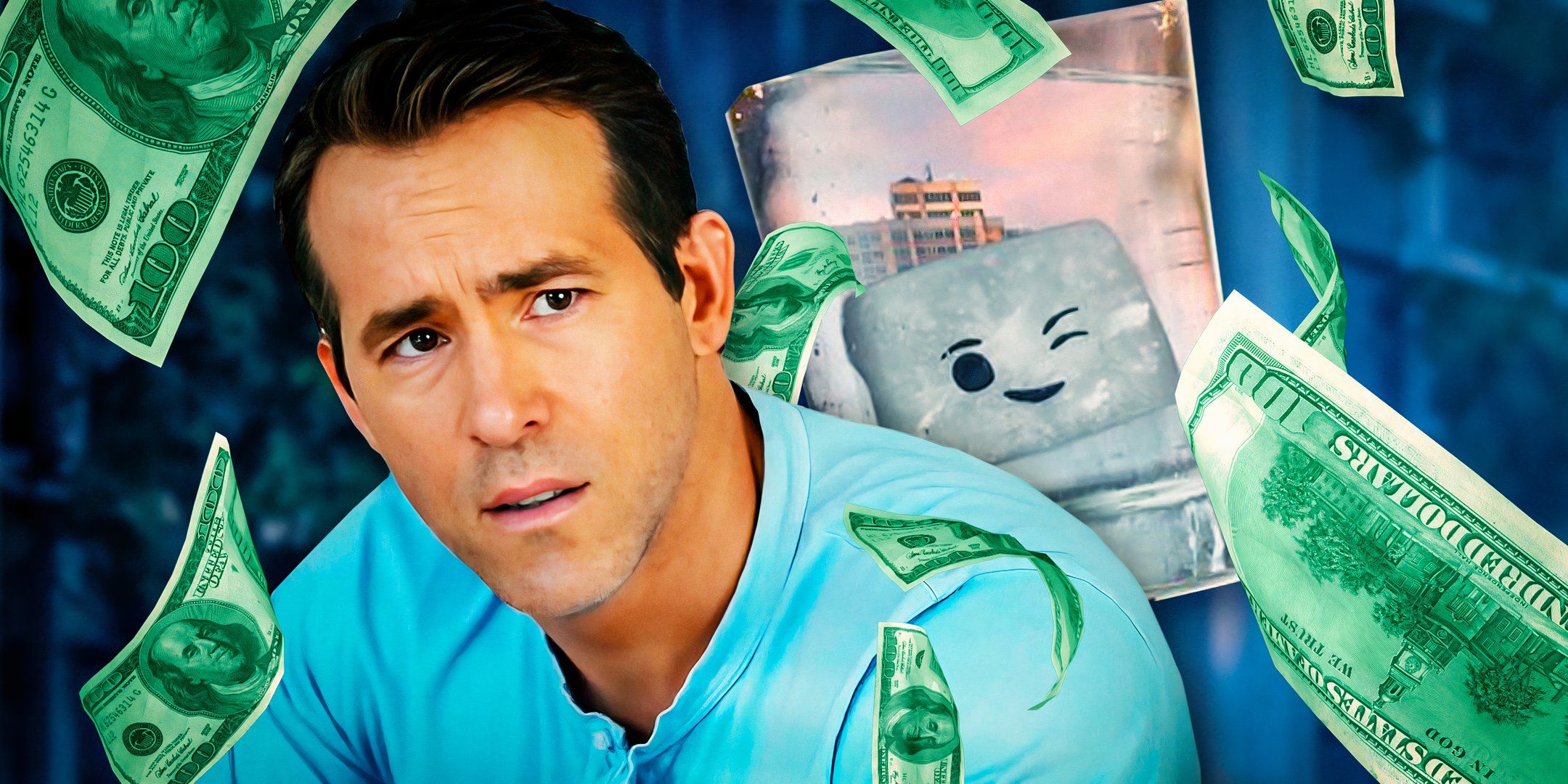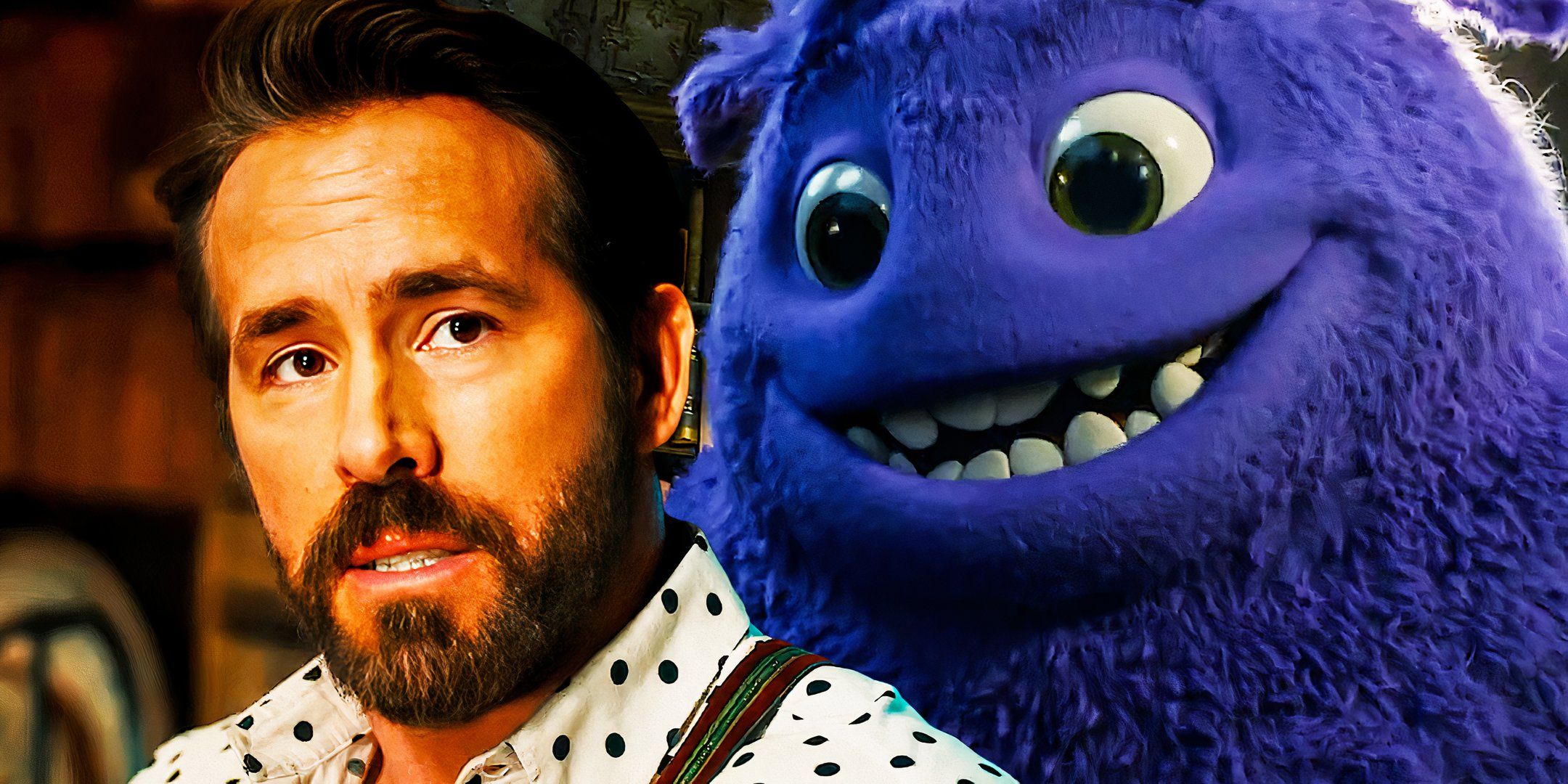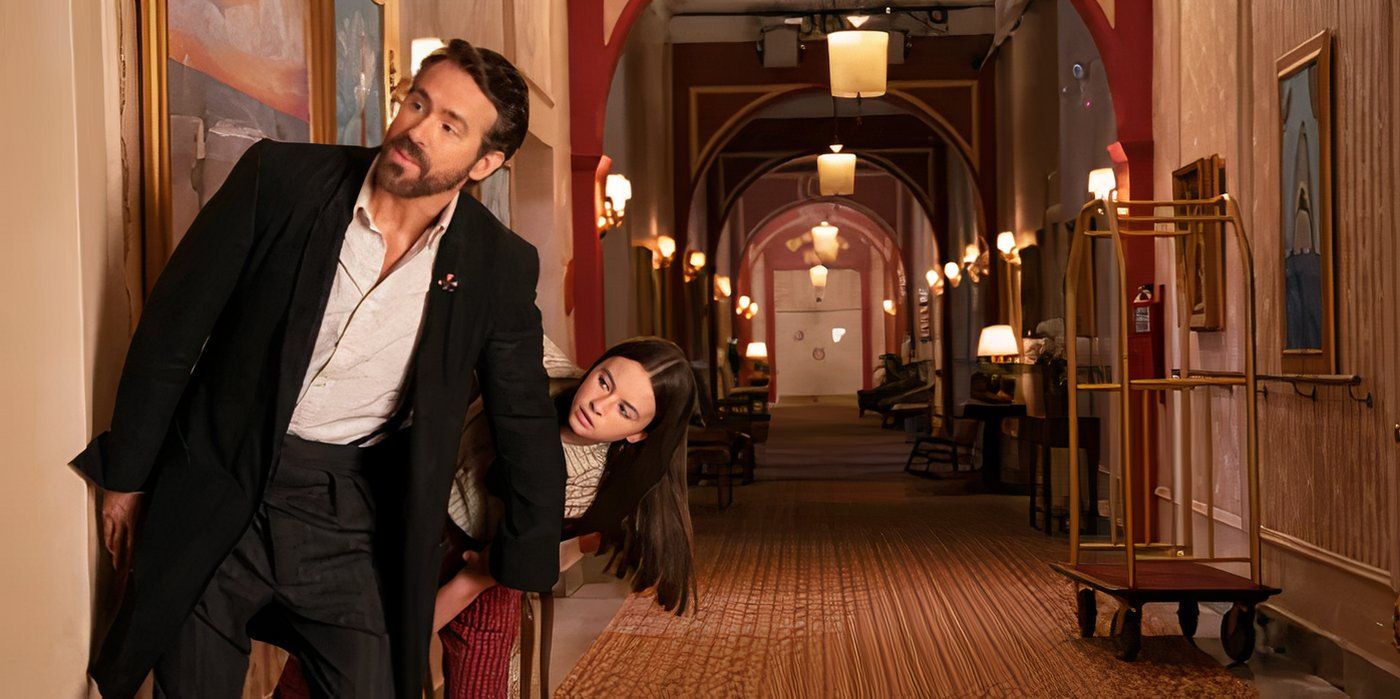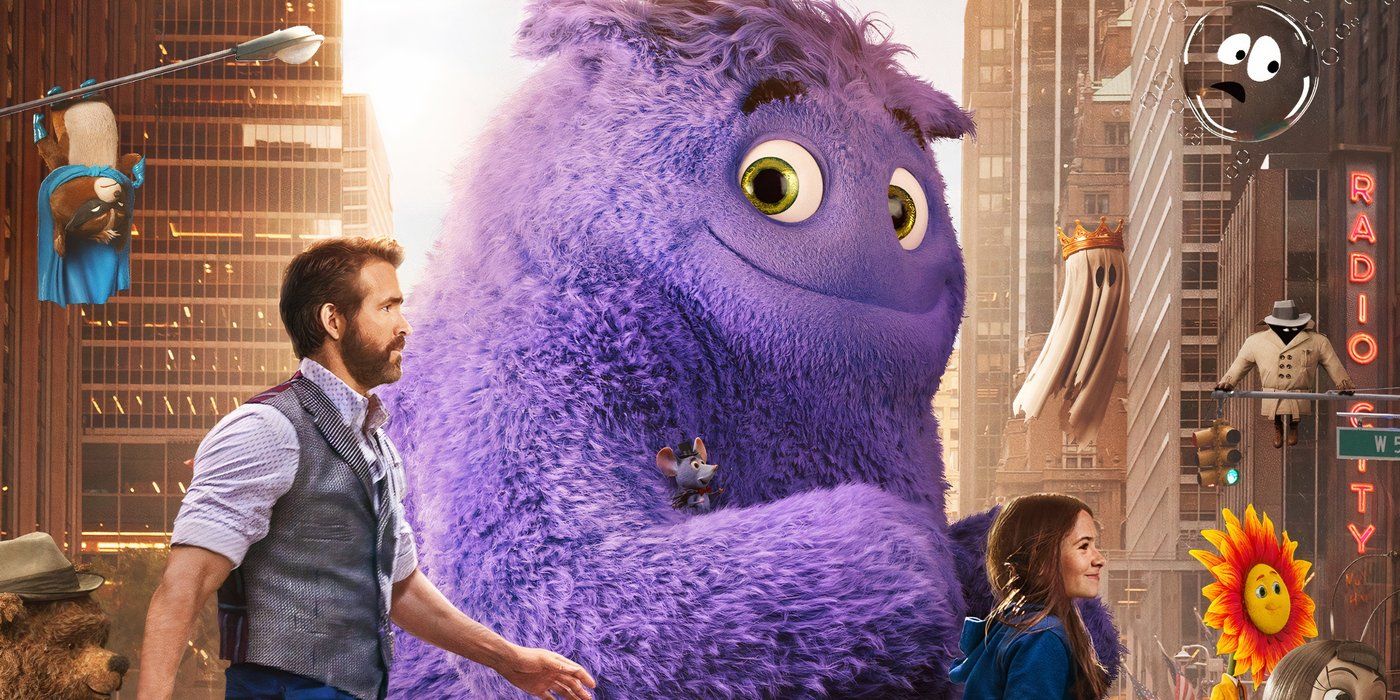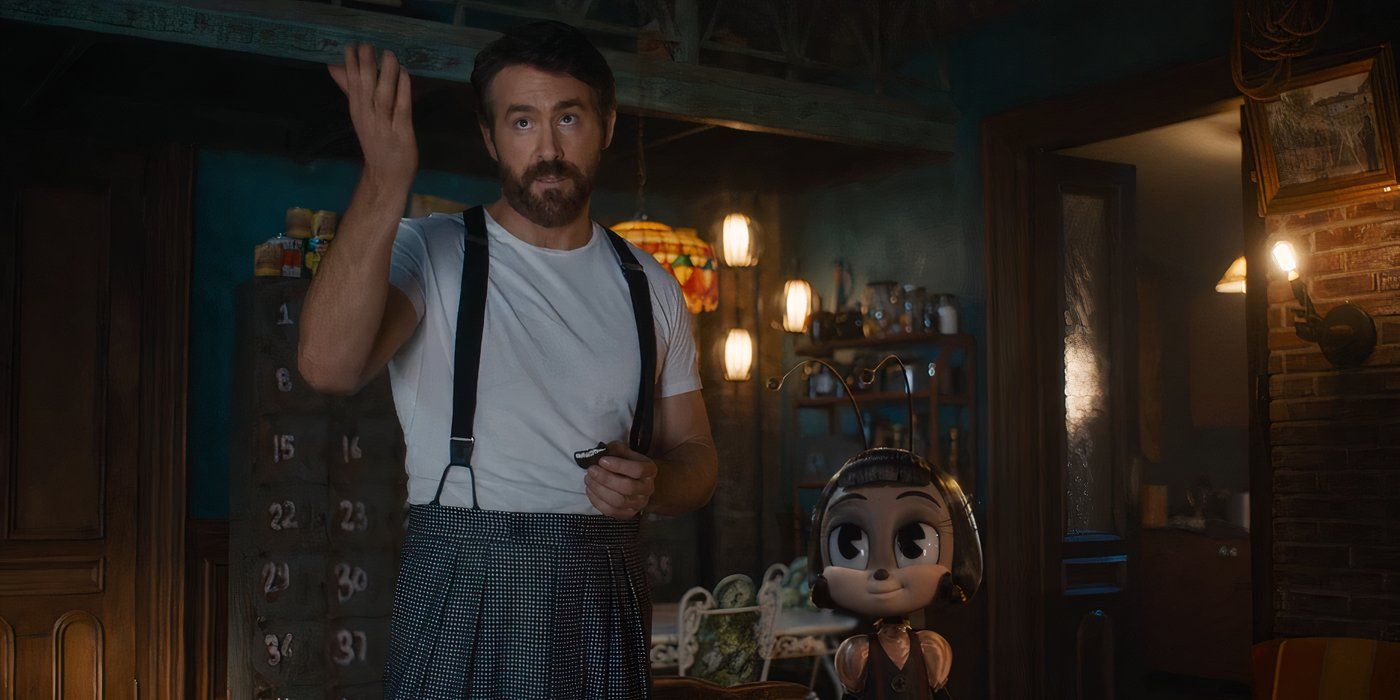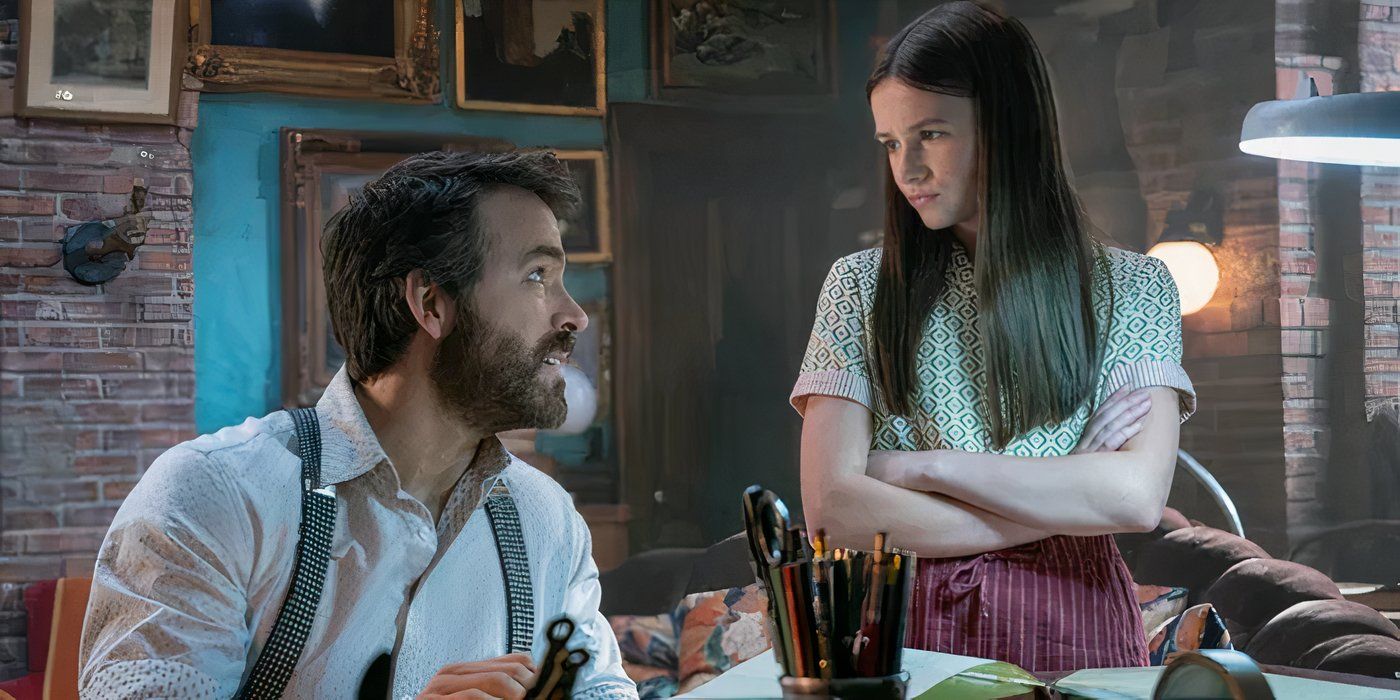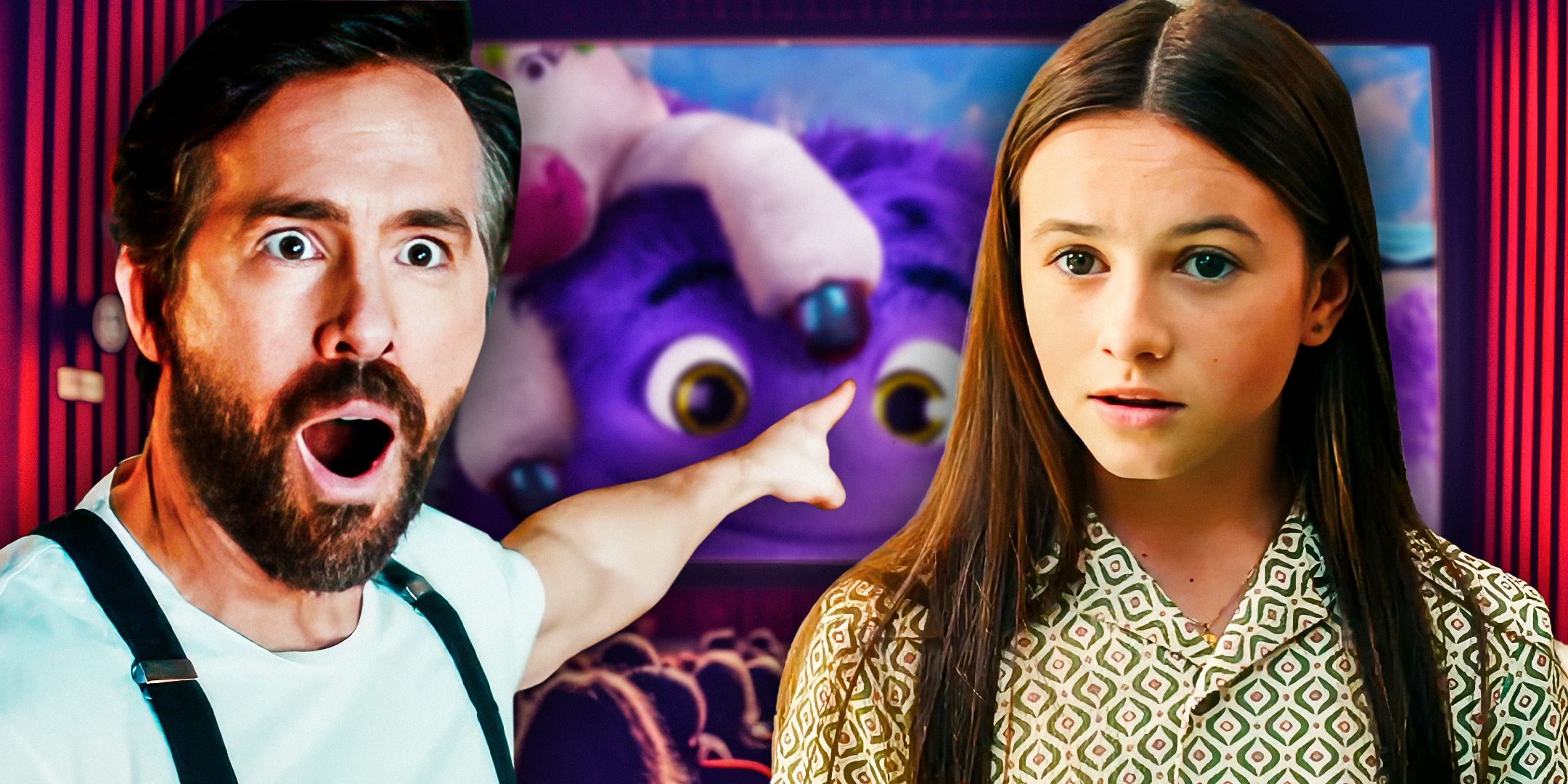The following contains spoilers for IF, now playing in theaters
Summary
- IF highlights the importance of imagination & self-actualization in the face of challenges and crisis.
- The emotional ending of IF allows for the possibility of a future reunion between Bea and Calvin.
- IF's conclusion suggests that the retired imaginary friends find peace by reuniting with their original kids.
IF is a sweet-hearted film that ends on a very positive note that reinforces the underlying themes of the film. IF focuses on Bea, a young girl who discovers she can see imaginary friends — otherwise known as IFs. While her father prepares for surgery, Bea distracts herself by working alongside her neighbor Cal, who can also see IFs and has been hard at work trying to find new homes and kids for the IFs to connect with. John Krasinski's family film follow-up to A Quiet Place explores the world of IFs and how they fit into the greater world.
Initially, the movie seems to be about finding IF's cast of colorful characters new places to go outside of a retirement home founded by one of the oldest IFs around. However, the true message of the film is far more emotional and focused on self-actualization and joy. The film explores the importance of imagination in the face of crisis and even hides its biggest twist in plain sight all along. Here's how IF's ending works on an emotional and thematic level, and how the film's sweet ending leaves the door open for a potential sequel.
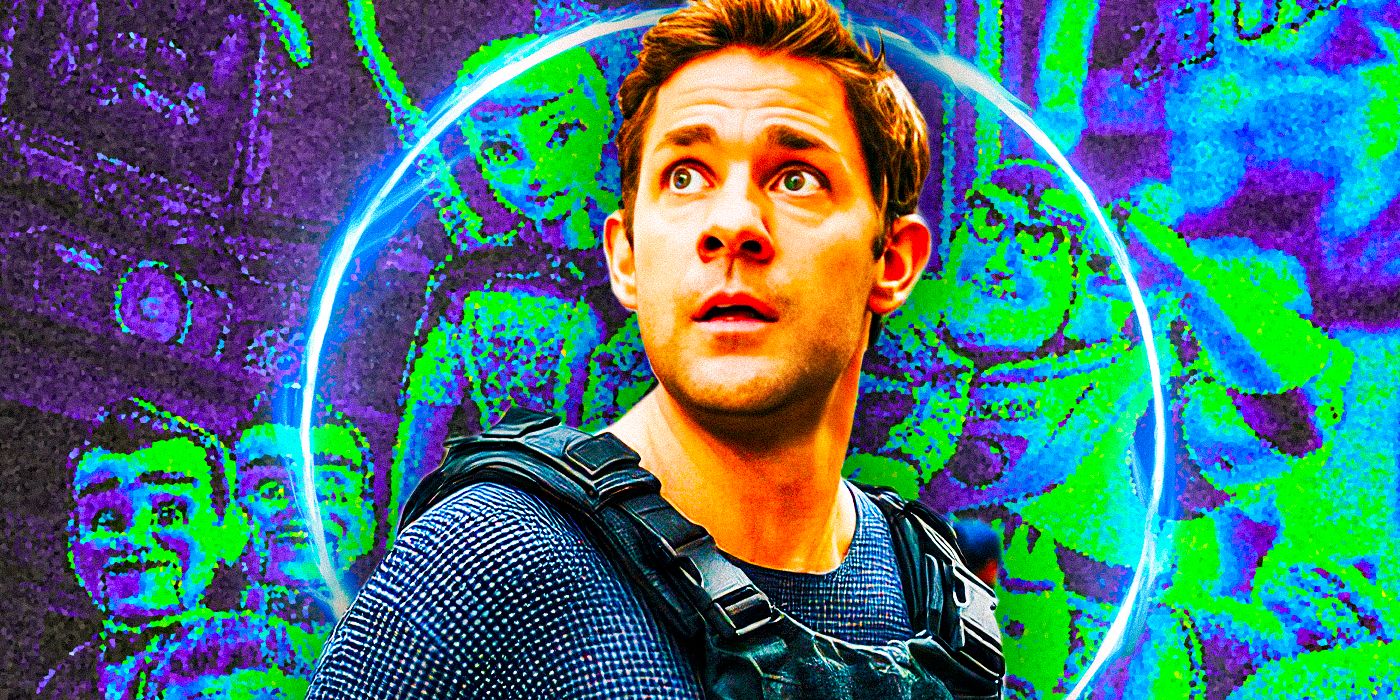
John Krasinski’s Next Movie Is The Perfect Answer To Waiting For Toy Story 5
The upcoming 2024 movie from John Krasinski is the perfect way for audiences to make the long wait for Toy Story 5’s eventual release better.
Bea's Final Interaction With Cal In IF, Explained
Cal Has Been Bea's IF All Along
IF's ending is a sweet send-off for Bea and Cal, with the pair embracing before Bea leaves New York City with her father. For much of IF, Bea's father is in the hospital for surgery. Despite one big scare towards the end of the film, the operation is a success. This leads Bea and her father to leave New York City, but the process of moving everything into the car knocks loose a drawing Bea did when she was younger of herself, her parents, and her imaginary friend — Calvin, who has been Ryan Reynolds' IF character Cal all along.
Finally realizing the truth about their connection, Bea rushes back upstairs and is able to spur her memory on to allow her to see Cal again. Now in far more colorful clothing befitting a clown, Cal greets Bea with a balloon flower and the pair share an embrace to close out the film. It's a very heartwarming moment, reflecting the overarching themes of the film while explaining lots of little aspects of Cal's role in the film.
Will Bea Ever See Calvin Again?
A Reunion Between Bea & Cal Could Eventually Come To Pass
The ending of IF does split Bea and Cal apart, but it's clear from the themes of the film that this isn't necessarily the only time the pair can see each other. One of the underlying messages of IF is that imaginary friends can still be important to people even after they grow up. In times of trouble or stress, the IFs can be reassuring even if they aren't seen. This means that if Bea needs help, Calvin could return to support her. Even if Calvin remains in New York, Bea's grandmother still lives in the city.
This could allow any visit to Bea's family could include a trip upstairs to Calvin's apartment. The fact that Cal is actually an IF explains a lot of his actions in the film and why no one else could see him. Both Bea and Cal seem emotionally reinvigorated in IF's ending, and an eventual reunion for the pair would make sense sometime down the line. Even Bea's father seems content with the idea of IFs, as the film's ending also reveals the invisible Keith has been his IF all along and has made the trip to their home.
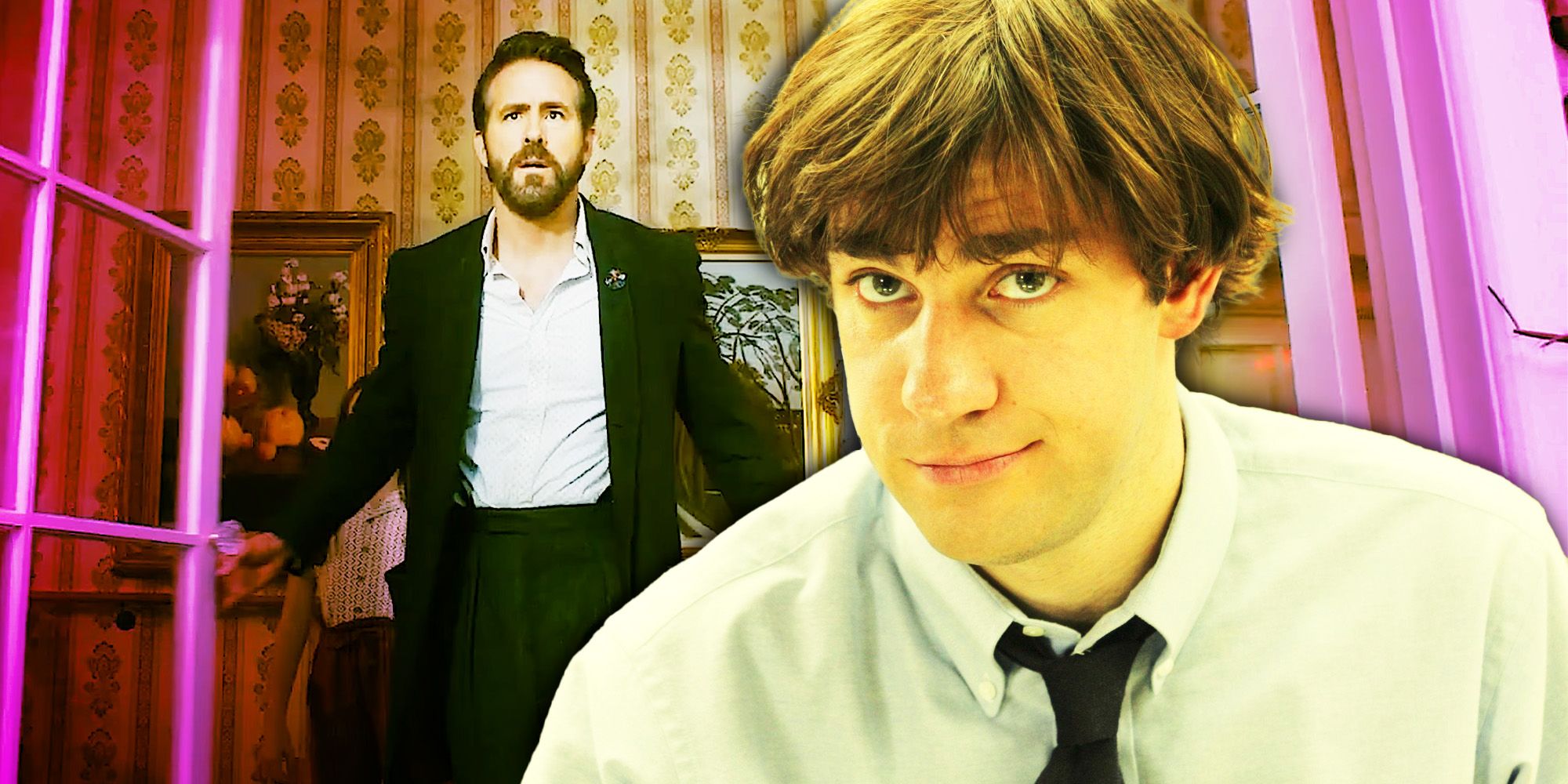
New John Krasinksi Movie Commits Very Hard To Making 1 Gag From The Office Even Better
A new promotional video for John Krasinski's upcoming comedy movie features a callback to an iconic joke from his previous series, The Office.
What Happens To The IFs After Bea Leaves New York?
The Ending Montage In IF Hints At Their Changing Mission
While the other IFs in IF don't follow Bea home, it's clear that her influence on them has already begun to have a positive impact. Several of the IFs are shown reuniting with their original people, starting with the confirmation that Bea's Grandmother remembers and can see Blossom. Other minor characters throughout the film are also revealed to be the original people for several of the IFs, with characters like Unicorn and Ally getting the chance to reunite with their people.
While not every IF gets the chance to be reunited with their original person, the implication of the film's ending is that the retired IFs will continue returning to their people instead of placing them with new kids. This is reaffirmed by Benjamin, who wasn't able to see any of the other IFs but is revealed to have his own bespectacled dragon IF. The ending of IF suggests that the IFs find peace by reuniting with their original kids even if only for a little while, as seen with Blue's clear joy in giving Jeremy a moment of self-confidence.
How IF's Ending Theme Changes The Beginning Of The Movie
IF Isn't Really About Finding IFs New Homes
IF's ending can come as something of a surprise, given the film's first act. When Bea first meets Calvin and Blue, the latter is in the middle of an attempt to forge a relationship with a new kid. The idea of a placement system for the IFs makes sense, giving them all a new chance to find homes outside of the retirement community created by the elderly teddy bear Lewis. However, the film instead ends up focused on the importance of retaining a sense of hopeful imagination, even as an adult.
This is the big lesson that Bea's father wants to ensure she takes to heart, and Bea's time with the IFs confirms this. Bea and the various adults seem genuinely happier when they reunite with their IFs. The theme of the film is that joy and imagination don't need to be necessarily forgotten or handed off, as children like Bea and Benjamin can have (and subsequently rediscover) their own personal IFs. It subverts the expectations set at the film's beginning about finding new homes for the IFs, arguing instead that the IFs already have somewhere to go.
How IF's Ending Sets Up A Sequel
IF's Ending Leaves the Door Open For Follow-Ups
IF's ending is fairly open-ended, even if the emotional arcs for Bea, Calvin, and the other IFs is completed. Bea could easily return to New York City to see her Grandmother, giving her a good chance to reunite with Calvin and the rest of the IFs who remain at the retirement home. However, there are enough lingering details about the world of IF that could make a sequel an interesting prospect. There's the question of what happens to aging IFs or if they're truly forgotten. Blue mentions his fears that he could disappear if he's forgotten fully by people.
Calvin expresses a belief that isn't what happens to IFs, but it does raise a good question about whether or not IFs can age or even die. A sequel that explores what happens to IFs and their mortality could be the best way to address the passing of Louis Gossett Jr.,, who played Lewis. Bea will also continue to grow up, and her experience with the IFs could see her keeping helping them even as she reaches high school — an ideal setting to further explore IF's focus on people retaining their imagination even while growing up.
The Real Meaning Of IF's Ending
IF's ending is an affirmation of the importance of imagination and positivity, even in the face of hardship and challenge. When Bea is introduced in the film, she's pushed aside her childish side largely due to the loss of her mother and her father's declining health. Calvin and the other IFs help bring this back, with Lewis convincing her that imagination is still a powerful tool.
However, it's only when the film brings Bea's Grandmother and Blossom back together and briefly reunites Blue with Jeremy that the true lasting power of the IF and human connection becomes clear. The true meaning of IF's ending is that people should never truly forget or move on from that childish imagination that created the IFs in the first place. Even adults need them sometimes. People should try to avoid losing them. It's a very sweet moral, and gives IF a powerful central message.
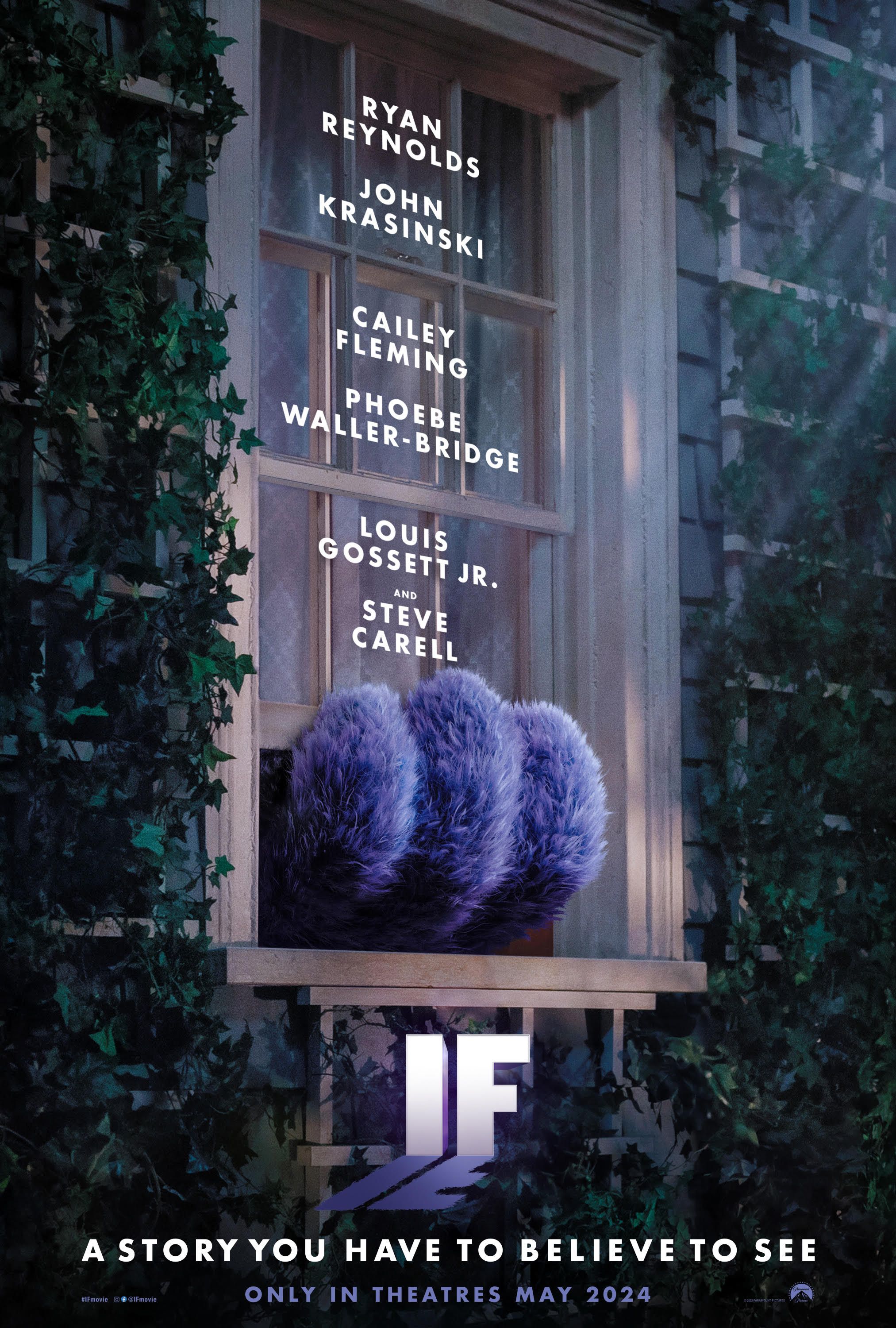
IF (2024)
IF, originally titled Imaginary Friends, is a comedic fantasy film written and directed by John Krasinski. A young girl who experiences a tragic moment early in her life discovers she can see the imaginary friends of others who leave them behind as they grow older.
- Director
- John Krasinski
- Release Date
- May 17, 2024
- Writers
- John Krasinski
- Cast
- Ryan Reynolds , John Krasinski , Cailey Fleming , Steve Carell , Matt Damon , Emily Blunt , Phoebe Waller-Bridge , Vince Vaughn , Sam Rockwell , Maya Rudolph , Jon Stewart , Awkwafina


